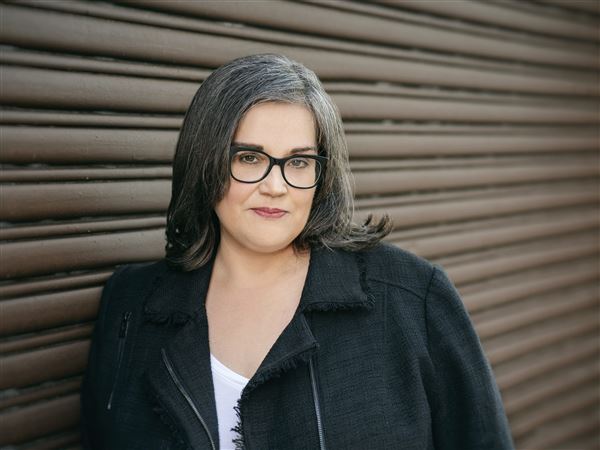“THE WOMAN IN THE CORNER”
By Nancy Krygowski
University of Pittsburgh Press ($17)
The Greek poet C. P. Cavafy who died in 1933 had a pretty good handle on this whole self-quarantine thing. “One monotonous day follows another / equally monotonous. The same things / will happen again, and then will happen again, / the same moments will come and go,” he knowingly sighs in his poem “Monotony”.
What he misses from our current experience are those moments that spike the malaise; those daily flashes of abject fear that rumble up during once innocuous chores such as grocery shopping, and the boiling rage we feel being isolated from loved ones who are sick and may face death sequestered alone.
However, I still find comfort in Cavafy's words. He may not have hit on the full picture of what is happening in our lives right now in this country, but he did get a piece of it. These lines from over a century ago make me feel seen. This poem absent all sentimentality is like an arm thrown around my shoulder by a good friend telling me he understands, saying “I feel you.”
Local poet Nancy Krygowski achieves that same knowing intimacy with her readers in her new collection “The Woman in the Corner”. Her work adheres to the same philosophy laid out by the writer Anton Chekhov that “(w)hat makes literature art is precisely its depiction of life as it really is. Its charge is the unconditional and honest truth.” Ms. Krygowski's poems are full of sharp detail, chattily funny, sexy as a lace negligee, and almost surgical in their ability to showcase the strength and fragility of the human heart.
Nancy Krygowski, an ESOL instructor with Literacy Pittsburgh, won the esteemed Agnes Lynch Starrett Prize in 2006 for her first book. Now 14 years later we finally have a second batch of her poems to savor. As a longtime admirer of her work I can very happily say it was worth the wait. In the ensuing years since that first book her work has mellowed at the edges and lost some of its formal austerity. What the poems have gained is an easy amicability, a voice so graceful and good-humored, even when writhing with anger and indignity, you feel its loss, like the absence of a truly dear friend, when you close the cover after finishing the last poem.
“The Woman in the Corner” is divided into four sections, each of which begins with a poem that is a question: “How Old Are You?”, “What Is Your First Name?”, “Where Are You From?”, and “Who Do You Think You Are?” Think of these questions as a spiritual census, not so much a long-dark-night-of-the-soul interrogation, but rather a summing up. The poems that follow address many subjects, central to the poet, however there are several that recur throughout the book.
There is the too-early death of the author's sister which washes the poems with a patina of heartbreak and loss. Also witnessed is the role reversal of caring for an aging mother,
All those Sundays, holding a hymnal,
my mother sang in a voice that switched keys
and now, naked, she wailed
long-breathed sobs worse than an infant's (from “Holy”)
The stages of a woman's life in America are directly reflected in the poet's personal experience, and that then is refracted through the intimacy and ultimate unknowability, or let's say mystery, of all of the women who appear in these poems.
Did the woman know then her husband would leave?
That she didn't love him or he didn't love her? The words, didn't love
merciless, too roomy to hold love's delicate glasswork. (from “So Easy”)
Throughout these poems you feel the ambient threat of male violence threatening to break loose. There's the irate driver yelling obscenities at a woman guilty of “not cutting off the cars / whose right it is to go straight” in “I'm Shouting at the Man” who the poet chastises “Be nice! Be nice!” There's the gang of teenage boys in “Welcome to America” who threaten sexual assault and the boys in “After Listening to Boys Bragging” who want to “blow someone away.”
Throughout all of it, Ms. Krygowski remains generous in spirit. As she writes in “The Body Is a Vessel, The Body Is a Temple”: I'm happy I'm not a god of life / and death but a small god of hope.” Ultimately, hopeful is what Krygowski leaves her reader feeling. That's something we could all use a little more of right now.
Kristofer Collins is the books editor for Pittsburgh Magazine. His latest book “The River Is Another Kind of Prayer: New and Selected Poems” was published in 2020.
First Published: May 16, 2020, 2:00 p.m.













